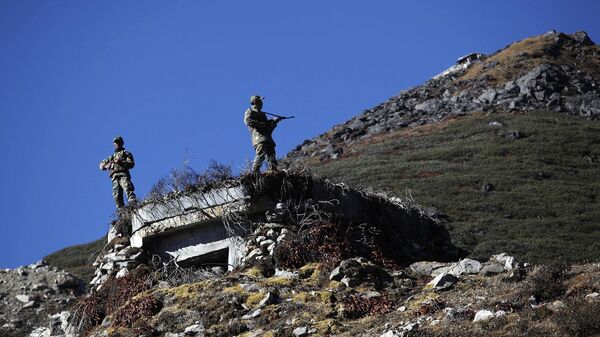New Delhi (Sputnik) — Indian Army Chief General Bipin Rawat has confirmed that the terms between Beijing and New Delhi have returned to the same level of cordiality that they'd been at prior to last year's Doklam standoff.
"I think the bonhomie (between India and China) has returned to what was prior to Doklam, so I don't visualize a very serious trouble, but then one has to be prepared for it always," Gen Rawat said during a multilateral dialogue in New Delhi.
I think the bonhomie (between India & China) has returned to what was prior to #Doklam, so I don't visualize a very serious trouble, but then one has to be prepared for it always: Army Chief General Bipin Rawat at in event during #RaisinaDialogue
— ANI (@ANI) January 17, 2018
The statement comes a couple of days after China expressed its strong displeasure over an earlier remark Rawat made in which he implied that the Indian Army would be shifting its focus from the western border (with Pakistan) to the northern border (with China).
READ MORE: Indian Army Chief: 'We Have to Be Prepared' Amid Chinese 'Pressure'
In response to General Rawat's statement, Chinese foreign ministry spokesperson Lu Kang said on Monday that the Indian Army Chief's remarks were "unconstructive."
"We ask the Indian military to learn its lessons from that incident (the Doklam standoff), abide by historical conventions and earnestly uphold the peace and stability of the border areas, thus creating a favorable atmosphere for the positive development of bilateral relations," Lu Kang said in the regular press briefing.
Meanwhile, India's political leadership has chosen to remain silent on the outburst by the Chinese side.
In 2017, the Doklam plateau — a disputed territory between China and Bhutan, witnessed a prolonged face-off between China's People's Liberation Army and the Indian Army, which stepped in to help its neighbor and traditional ally Bhutan when Chinese troops, in July, allegedly tried to disrupt the status quo in the disputed area by trying to build a road in the region. China saw this as an uncalled-for interference by a third party in a strictly bilateral issue, refusing to back down unless India withdrew its troops. The tension de-escalated only after months of hectic negotiations between the two sides who mutually agreed to simultaneously cut down troop's deployment in the region in November.


